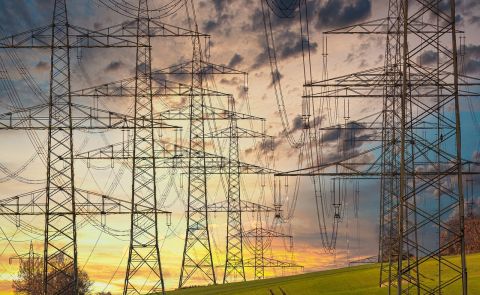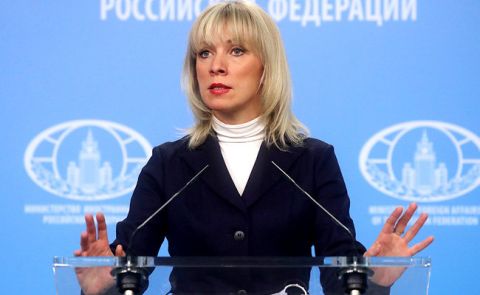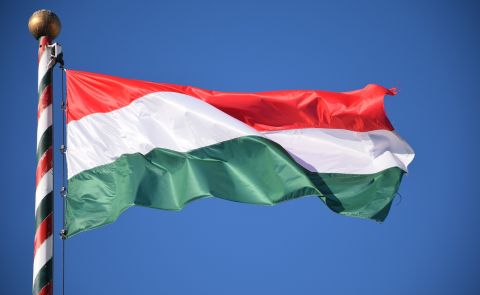
Constitution Debate in Armenia Sparks Political Tension Between Opposition and Government

Secretary of the opposition “Armenia” Faction of the National Assembly, Artsvik Minasyan, emphasized during a press conference on February 1 that Armenia’s Prime Minister Nikol Pashinyan and his regime are aiming to transform Armenia into a state dominated by the ruling Civil Contract Party. This, according to Minasyan, comes at the expense of national aspirations and goals, disregarding the preservation of the Armenian people’s identity. He described this as the underlying agenda of the current authorities, particularly in light of their initiative to adopt a new constitution for Armenia.
According to Minasyan, the decision of the Armenian authorities to adopt a new constitution was influenced by Azerbaijan and Turkey. He believes that if the authorities proceed with this step, it will signify the abolition of the third republic.
“It is terrible to realize that today's authorities are trying to deny the foundations of the statehood of the third Republic of Armenia as well. A state is like a building built on concrete foundations based on the national aspirations, goals, historical past, rights, and specified principles established by the international standard expressed in the Declaration of Independence [of Armenia]. If you change the foundation, it means you are destroying the building; you cannot change the foundation, [but] let the building exist. Today's authorities are going towards abolishing the third republic,” the Armenian MP added.
Referring to the discussions concerning the changing of Armenia’s constitution, Vladimir Vardanyan, a member of the ruling majority Civil Contract Faction and chairman of the Standing Committee on State and Legal Affairs of the National Assembly, remarked: “We should approach the constitution from two angles: the constitution as the written document, and the constitution as an expression of the citizens’ will or boundaries.”
“I will not be an exception if I say that in connection with the referendums on the adoption of some constitutions, there have been various comments on how that text was adopted, whether or not it received the vote of the majority of [Armenian] citizens, or in what way it was received. All this has been constantly discussed since 2018, and even if the text remains the same, we must understand: is the will of the citizens really like this? I want us to consider the Constitution as a living document that needs changes during the development phase of public relations. From this point of view, Armenia is neither the first nor the last [country] to discuss the matter of not only constitutional reforms but also the text of the new constitution after independence,” Vardanyan noted.
When asked whether there is a possibility of excluding the reference to the Declaration of Independence of Armenia in the potential new constitution, Vardanyan responded, “I reiterate, it's not me who excludes it, nor is it you who excludes it. If the new constitution text goes to a referendum, the constituents will decide what text will be in the constitution.”
Regarding the opposition’s belief that changing the constitution is a demand from Azerbaijan, Vardanyan stated. “We discuss this issue more than the Azerbaijani media. No constitution can or should be adopted under pressure because adopting it under pressure raises sovereignty issues. The document's preamble only contains provisions that may be necessary under certain conditions to interpret a particular constitutional norm. In the new constitution, there may be a greater or lesser reference to the Declaration of Independence; it's just an idea, and the decision will be made by the people. Any judgment about the text can only be on an academic or analytical level at this point. I have always been against attempts to change the constitution every week, and I am also against treating the constitution as a ‘sacred cow’; it is a living document.”
Referring to this topic, Armenian PM Nikol Pashinyan again emphasized the importance of safeguarding Armenia’s sovereignty in an interview with the Armenian Public Radio. In his remarks, he asserted that external interference in state affairs should not be tolerated. He also discussed the significance of regulating relations with the Declaration of Independence and pointed to the constitutional referendum as a crucial moment in transforming from a 'non-state people' to a ‘state people.’
See Also


Energy Sector Milestones: Armenia Advances Key Power Infrastructure

Armenia Temporarily Halts Brandy Exports Amid Georgian Border Congestion

Political and Religious Conflict Intensifies Over Armenian Apostolic Church Leadership

Maria Zakharova Warns Azerbaijan to Respect Russia’s Sensitivities on NATO Expansion, Criticizes EU Mission in Armenia

